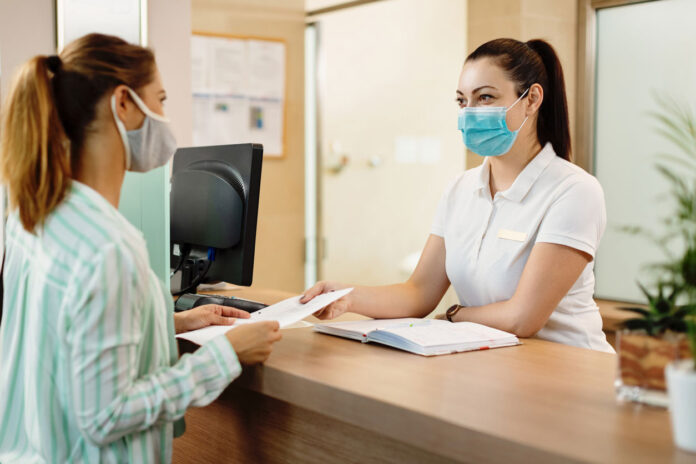Health
Discover Lincoln’s Top Walk-In Clinics for Immediate Care

Walk-in clinics have become an essential part of the healthcare landscape in Lincoln, offering convenient medical services without the need for appointments. These facilities cater to individuals seeking immediate attention for minor injuries, illnesses, and routine health checks, particularly those who may not have a primary care provider or have limited time due to work or family obligations. With extended hours and locations strategically placed throughout the city, walk-in clinics provide timely interventions that can prevent more serious health issues.
Understanding Walk-In Clinics
The appeal of walk-in clinics lies in their straightforward approach. Patients can visit without an appointment and often receive care almost immediately. These clinics are particularly beneficial in today’s fast-paced environment, where convenience is a priority. Walk-in clinics typically offer flexible hours, often remaining open during evenings and weekends, thus accommodating those in need of care outside regular office hours. Their increasing popularity can be attributed to their efficiency, lower costs compared to emergency rooms, and the rapidity with which patients can receive treatment.
Walk-in clinics differ significantly from traditional healthcare facilities. While traditional systems often require scheduled appointments that can lead to long wait times for non-emergency cases, walk-in clinics focus on providing immediate care for urgent, non-life-threatening conditions like colds, flu, and minor cuts. Additionally, while comprehensive care remains a hallmark of traditional healthcare, walk-in clinics primarily address acute care and basic preventive services, such as vaccinations. Many are staffed by nurse practitioners and physician assistants trained to handle various conditions, although they may not provide specialized services found in hospitals or with primary care physicians.
Services and Patient Experiences
Patients visiting walk-in clinics can expect a range of services designed to address immediate healthcare needs efficiently. Common offerings include treatment for minor injuries, evaluation of acute illnesses, and routine health screenings like blood pressure checks and cholesterol testing. Many clinics are also equipped to administer vaccinations for diseases such as flu, hepatitis, and tetanus. The accessibility of these services makes walk-in clinics a valuable resource for individuals seeking care without the barriers often presented by traditional healthcare systems.
“The compassionate care I received not only alleviated my immediate health concerns but also instilled confidence in my future healthcare decisions.” – Sarah, Lincoln resident
Lincoln is home to several notable walk-in clinics that have built reputations for quality care. The Lincoln Urgent Care Center is renowned for its attentive staff, short wait times, and comprehensive services, making it a popular choice among families. Patients frequently commend the clinic’s cleanliness and the professionalism of its healthcare providers. Another respected facility is Faith Regional Health Services Express Care, which combines urgent care with essential primary care services. This clinic stands out for its focus on both treating acute health issues and providing preventive services, ensuring that visitors receive well-rounded healthcare.
Bryan Urgent Care also ranks highly among local clinics, offering multiple locations and extended hours. This facility is recognized for its advanced diagnostic tools and emphasis on technology, including the use of electronic patient records to enhance communication and coordination of care.
Patient testimonials reflect the positive experiences many individuals have had at these clinics. For example, Mark, a father of three, shared how relieved he was to find a nearby walk-in clinic open on a weekend when his child developed a high fever. He appreciated the prompt care and thorough explanations provided by the staff regarding aftercare and when to seek further medical help if symptoms persisted.
Finding the Right Clinic and Maximizing Your Visit
Accessibility is a crucial factor when selecting a walk-in clinic. Many clinics position themselves in high-traffic areas or near residential neighborhoods, ensuring they are readily available for community needs. Potential patients can utilize online resources, including clinic locators and review platforms, to assess proximity, services offered, and patient ratings. Key factors to consider include operational hours, wait times, and the range of services provided.
Preparation can significantly enhance a patient’s visit to a walk-in clinic. Essential information to bring includes personal identification, insurance cards, and a list of current medications or allergies. For those managing chronic health conditions, relevant medical records can expedite the diagnostic process. Additionally, patients should jot down their symptoms, including when they began, to assist healthcare providers in formulating effective treatment plans swiftly.
Understanding the financial aspect of healthcare is also important for patients. Costs for walk-in clinic visits can vary widely, with average expenses ranging from $100 to $200 depending on the complexity of care. It is advisable for patients to contact their insurance providers beforehand to confirm coverage details and potential out-of-pocket costs. Many clinics offer discounted services or payment plans for uninsured patients, making healthcare more accessible to those in need.
In conclusion, walk-in clinics in Lincoln provide essential healthcare services to the community. They offer a convenient, affordable alternative to traditional hospitals for non-life-threatening conditions. By understanding what these clinics offer and how to navigate the experience effectively, patients can ensure they receive timely and appropriate care when they need it most.
-

 World4 months ago
World4 months agoScientists Unearth Ancient Antarctic Ice to Unlock Climate Secrets
-

 Entertainment4 months ago
Entertainment4 months agoTrump and McCormick to Announce $70 Billion Energy Investments
-

 Lifestyle4 months ago
Lifestyle4 months agoTransLink Launches Food Truck Program to Boost Revenue in Vancouver
-

 Science4 months ago
Science4 months agoFour Astronauts Return to Earth After International Space Station Mission
-

 Technology2 months ago
Technology2 months agoApple Notes Enhances Functionality with Markdown Support in macOS 26
-

 Top Stories3 weeks ago
Top Stories3 weeks agoUrgent Update: Fatal Crash on Highway 99 Claims Life of Pitt Meadows Man
-

 Sports4 months ago
Sports4 months agoSearch Underway for Missing Hunter Amid Hokkaido Bear Emergency
-

 Politics3 months ago
Politics3 months agoUkrainian Tennis Star Elina Svitolina Faces Death Threats Online
-

 Politics4 months ago
Politics4 months agoCarney Engages First Nations Leaders at Development Law Summit
-

 Technology4 months ago
Technology4 months agoFrosthaven Launches Early Access on July 31, 2025
-

 Top Stories2 weeks ago
Top Stories2 weeks agoFamily Remembers Beverley Rowbotham 25 Years After Murder
-

 Top Stories5 days ago
Top Stories5 days agoBlake Snell’s Frustration Ignites Toronto Blue Jays Fan Fury











